6 Beneficial Turnip Companion Plants (And 4 Plants To Avoid)
Turnips, like all crops, sometimes need a little bit of extra support to thrive. This is where companion planting comes into play. Gardeners commonly use companion planting to help their plants grow successfully.
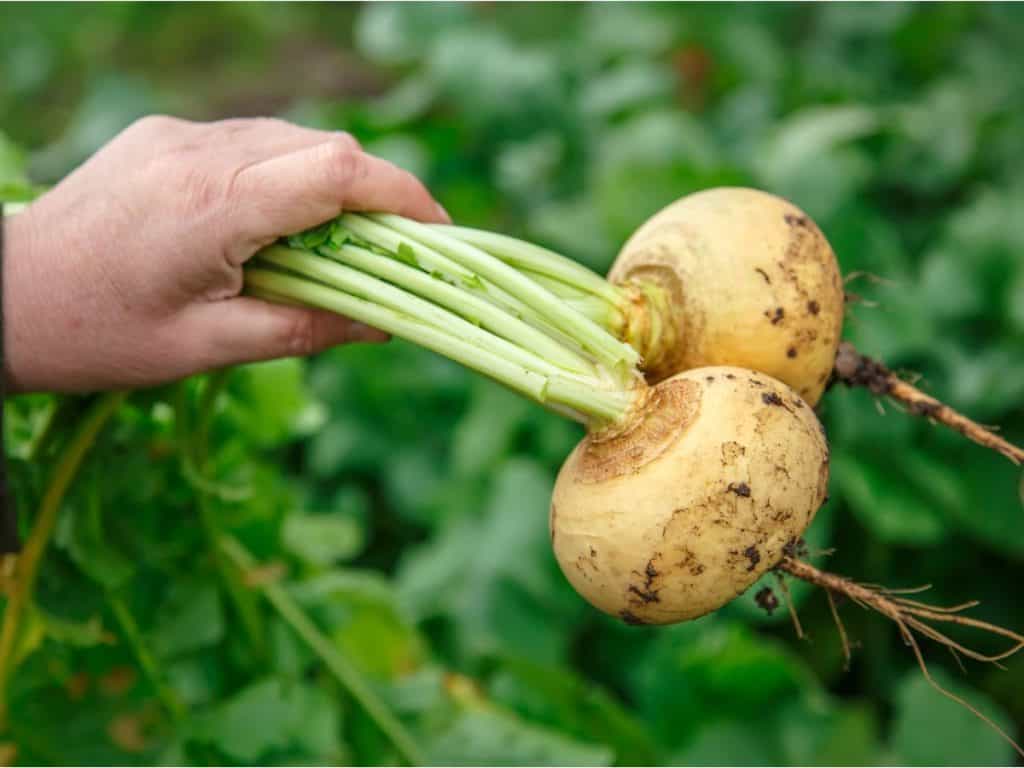
This post contains affiliate links that earn me a commission at no additional cost to you.
Gardeners like you, plan their crops before planting to match plants together that will support one another’s growth and work in harmony vs in competition.
Turnip companion planting works in precisely the same way. Some crops can be planted together to attract pollinators, provide more nutrients, or deter pests. Some plants do not make good companions and should be avoided due to competing for space and nutrients or attracting the same pests.
In this post, we will share some beneficial turnip companion plants and a list of plants to avoid to help you plan and prepare your garden.
6 Ideal Turnip Companion Plants
The best turnip companion plants are those that are strongly scented to deter pests and do not take up a lot of space underground.
Mint
Mint is a popular herb to grow for its rich aroma. It makes an excellent companion plant for many crops, including turnips.
Its strong scent can help repel aphids and flea beetles, both of which like to feed on turnips. Mint also helps to attract earthworms which are great for improving the health of the soil.
Although mint has it’s benefits, it is a crop to be careful planting as a companion plant. Mint can be invasive as it grows quickly and spreads rapidly.
A good alternative to mint, yet still offering the same benefits, is to plant catmint. It is less invasive yet still repels the same pests.
Borage
Another plant fantastic for repelling pests is borage. As a companion plant, it helps deter cabbage worms from eating the turnip greens.
Its beautiful blue flowers also help to attract beneficial insects like parasitic wasps, which will feed on other pests.
Garlic
As part of the allium family, garlic is strongly scented and is excellent at deterring pests away from crops planted nearby. Garlic will help deter onion flies and weevils.
In return, turnip also makes an excellent companion plant to garlic. It helps deter aphids and beetles away from your garlic crops.
It is often recommended to avoid planting alliums alongside turnip plants due to competing directly for nutrients and space. However, as garlic is a smaller crop than onions, for example, and matures quickly, it does not take up space or nutrients, making it an ideal turnip companion plant.
Beans and Peas
Beans and peas are well known for producing high quantities of nitrogen, which is released into the soil. When planted next to other crops, such as turnips, the other crops benefit from the extra nutrients leeched into the soil.
Turnips, beans, and peas also do not compete for space. As beans and peas mostly grow upwards above ground, they offer shade to turnip plants.
Vetch
Part of the legume family, vetch, also known as tares, produces beautiful delicate purple flowers, attracting vital pollinators to your garden, such as bees. They also act as a deterrent for aphids helping keep these pesky insects away from your turnip crops.
However, vetch can become invasive if not managed. If choosing to grow vetch, it is best to prune regularly throughout the growing season or consider growing it in pots alongside your crops.
Celery
Celery and turnips complement one another when planted together and make a good duo of companion plants.
Both crops help to deter pests from the other, with celery deterring cabbage moths and turnips taking care of aphids.
However, celery is a prized crop for larger pests such as deer, who thoroughly enjoy eating this and other leafy greens. If planting these two crops together, adding a third, highly aromatic crop such as garlic or mint is best to ensure deer won’t destroy your crops in one sitting.
What To Avoid Planting Near Turnips
As with all crops, certain plants should never be planted together for several reasons, including:
- Competing for space either above or below ground
- Competing for nutrients
- Susceptible to the same pests creating a feeding ground when planted together.
These crops are specific to planting alongside turnips and should be avoided completely.
Potatoes
Being a fellow root vegetable, potatoes do not grow well next to other root vegetables, such as turnips, onions, or carrots.
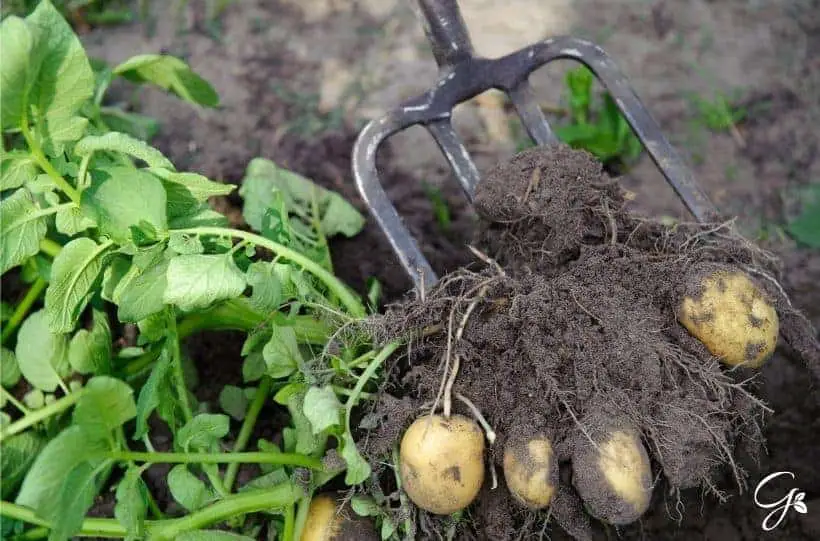
Potatoes and turnips specifically store starch within their roots and tubers and will compete for space. If planted together, neither crop will thrive.
Onions
Onions make excellent companion plants for so many crops being part of the allium family. They have a strong scent, which can deter many pests away from other crops.
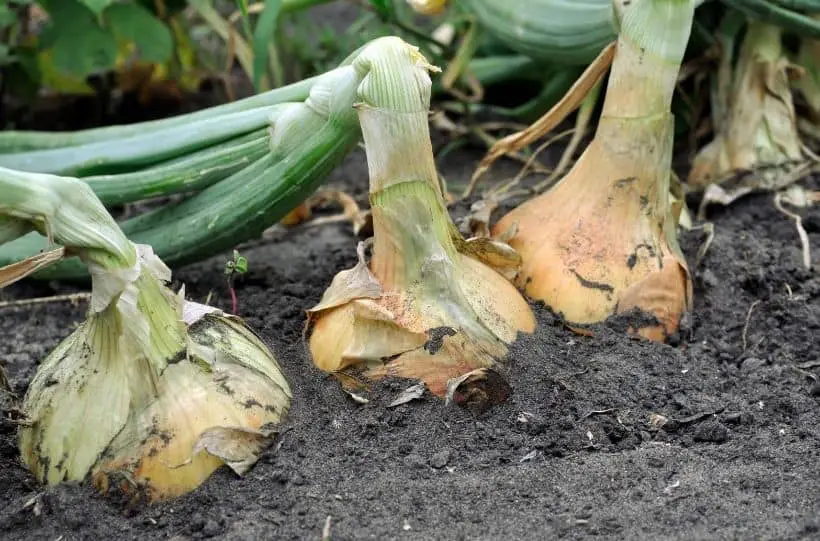
But, for the same reason that potatoes should not be planted near turnips, onions are also a root vegetable that will compete for space.
They can, however, be planted near your turnips, perhaps in a pot or a couple of feet away near other crops. This will still offer some benefit to your turnip plants to help repel aphids, carrot flies, and other pests.
Hedge Mustard
With beautiful yellow flowers, hedge mustard can be very tempting to grow amongst your crops. But, with hedge mustard coming from the same family as turnips, it can attract the same pests – in this case, cabbage whites.
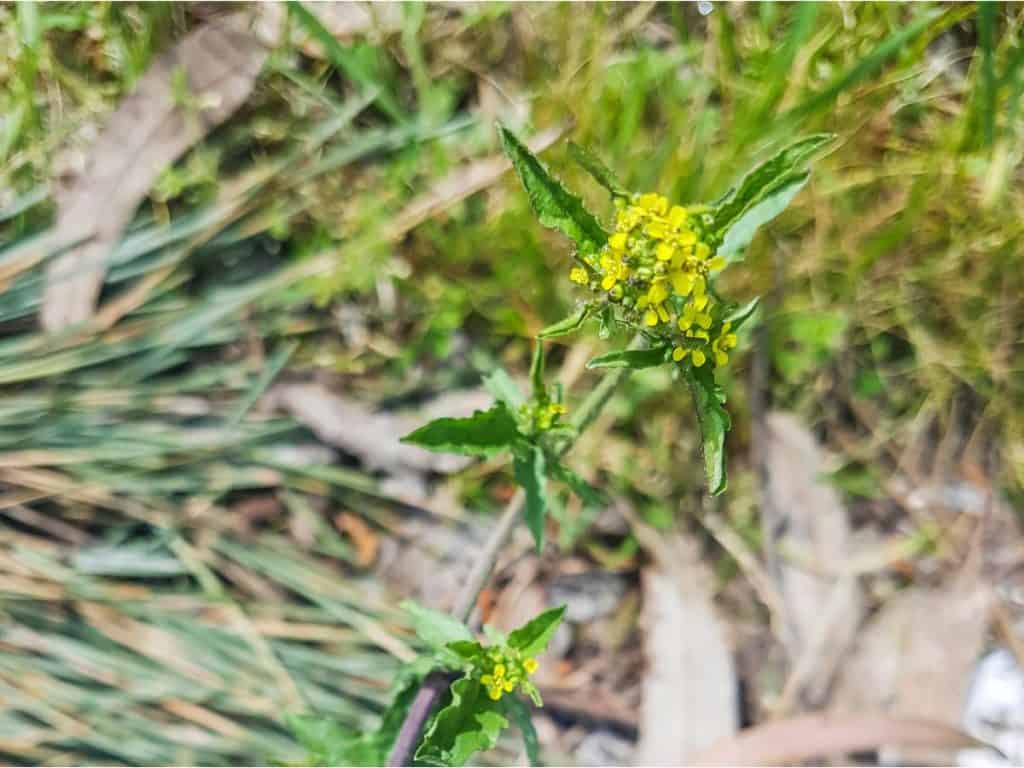
Hedge mustard can grow rapidly, too, both underground and above, which will inhibit their growth when planted near turnips.
Nightshades
Nightshades include plants such as tomatoes, eggplant, and peppers should also be avoided altogether. Although they do not harm your turnips, your turnips do and will inhibit their growth.
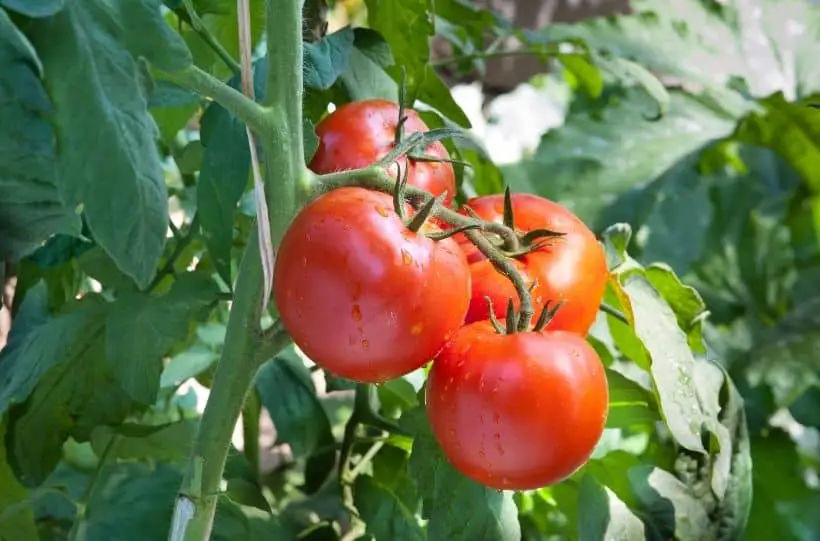
Preparing your garden in advance and planning which crops work best together will create a harmonious space leading to a higher crop yield.
These turnip companion plants will specifically aid your turnips, helping them avoid being eaten by pests and ensuring they reach their maximum growth potential.
For more companion planting guides, make sure to take a look at some of the following posts below:







